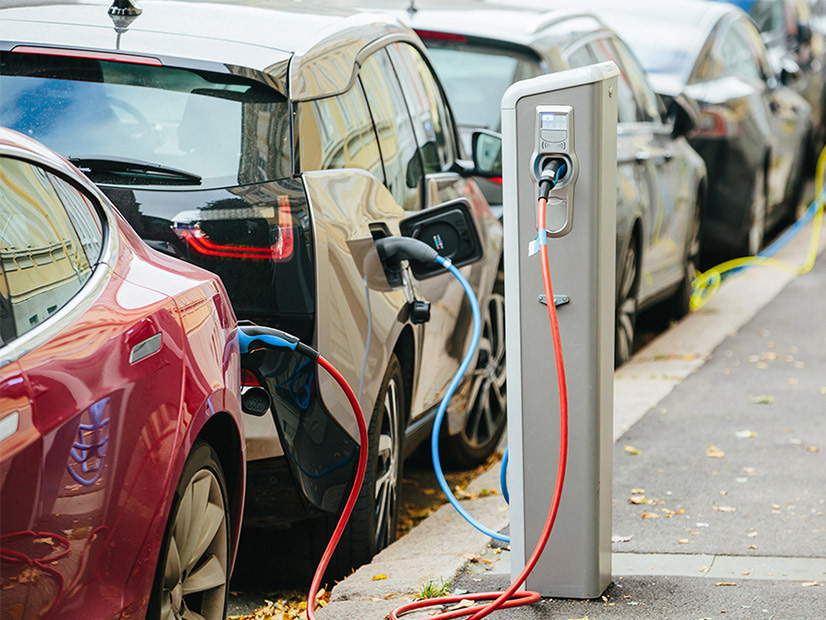New York is moving to cut the cost of electricity supplied to commercial charging stations for electric vehicles.
The Public Service Commission on Thursday approved a multiphase package of incentives, tariffs and programs to reduce the impact of demand charges.
As an immediate solution, all investor-owned utilities are directed to implement a 50% rebate against traditional demand charges for public direct current fast charger (DCFC) sites.
Customers qualify if their charging station accounts for at least 50% of their maximum on-site electrical demand.
The order also implements commercial managed charging program with use-case-specific adders in the territories of the two downstate utilities: Consolidated Edison (NYSE:ED) and its subsidiary Orange & Rockland Utilities.
In the upstate territories of Central Hudson Gas & Electric (NYSE:FTS), National Grid (NYSE:NGG), New York State Electric & Gas (NYSE:AGR) and Rochester Gas & Electric, the 50% rebate is extended to all commercial EV charging use cases. The four utilities are also required to file commercial managed charging program proposals within 180 days.
As a near-term solution, the PSC order requires the utilities to file within 180 days a proposal for a phased-in rate solution that will replace the demand charge rebate and use-case-specific adders.
Additionally, the order directs the utilities to implement standby rate exemptions for customers who install energy storage systems to help manage their EV charging load.
The order also imposes semiannual reporting requirements on the utilities and creates a biennial review of the effectives of the cost-relief programs and tariffs contained in the order.
The PSC’s order stems from a 2021 change to state Public Service Law. A September 2022 white paper written by Department of Public Service staff, with comments submitted by the utilities and other stakeholders in response, form the basis for much of the order.
The aim is to reduce the operating cost barrier to rapid expansion of public EV charging infrastructure that would be posed by traditional demand charges.
The PSC order notes the inherently conflicting goals at play: The demand charge is a powerful incentive for customers to manage the load they impose on the electrical grid and also potentially a disincentive to wider public acceptance of EVs. But if the incentive is removed and customers do not manage their demand, utilities will have to pay for expensive infrastructure upgrades to accommodate it, and customer prices will rise as a result.
Also, it is impossible to predict when drivers will pull into a public charging station or how much of a charge their vehicles will need. So, planning or managing load is impossible, as well as antithetical to the very point of having public chargers.
Other utility customers will bear the expense of reduced-cost electricity to public charging stations via a surcharge with a one-year lag.
“Our determination to allocate costs among service classes using the transmission-and-distribution revenues allocator reflects the fact that all customers will benefit from the environmental and societal benefits of the transition to electric vehicles, which this order seeks to accelerate,” the PSC said in its order.
The commission will cancel the existing DCFC Per-Plug Incentive (PPI) program and use its unspent funds for a new program to incentivize EV charging demand management technologies. The order calls PPI an “unpopular … series of foibles” and says that “onerous eligibility requirements” similar to those of the program would undercut the demand charge rebate.
The order refers to the “chicken-and-egg” problems of this stage of EV deployment, in which more people need to buy EVs to fund the buildout of public charging infrastructure, and more public chargers need to be built before New Yorkers have confidence to purchase EVs in larger numbers.
“It is clear that the electric vehicle charging industry faces challenging economics under today’s market conditions, particularly in areas where electric vehicle adoption does not yet generate a sufficient level of sales to offset the utility costs,” PSC Chairman Rory Christian said in a statement. “Electric vehicle deployment will play a key role in meeting the dramatic carbon-reduction goals set forth in the Climate Leadership and Community Protection Act, and our decision today provides the industry with a level of operating cost relief that will accelerate investment.”




